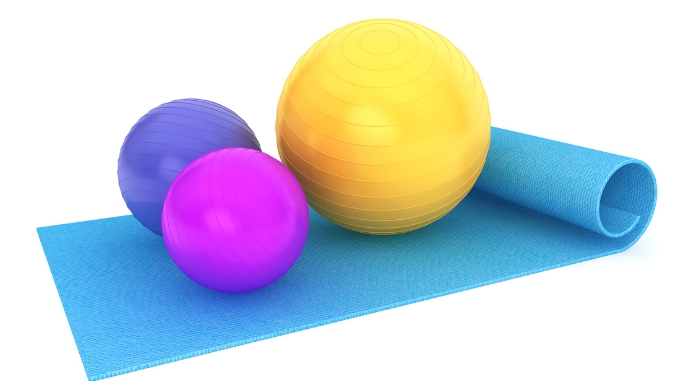I've realized that why does my back hurt when I cough is a frequent question, as coughing can sometimes trigger unexpected back pain. The force of a cough strains my back muscles, causing discomfort.
By understanding why does my back hurt when I cough—especially how coughing impacts muscle tension and spinal nerves—I can start to identify what causes this pain and find ways to relieve it.
Connection Between Coughing And Back Pain

A cough [¹] is a quick, repeated action that helps clear the large airways of mucus, irritants, foreign particles, and germs.
The muscles used to cough are located in the upper half of the body, including the abdominal and Common Causes of Back Pain
When coughing, why does my back hurt when I cough? Back muscles can strain the spine and spinal canal, worsening pain, especially with conditions like spinal stenosis or severe nerve compression.
One study indicates that chronic cough and chronic pain might influence each other, possibly due to shared causes or biological factors.
If you have one of these conditions, it's important to understand that you might be at a higher risk for developing the other.
Back pain when coughing, or why does my back hurt when I cough, can be exacerbated by existing back pain, spinal nerve issues, or muscle strains.
Common Causes Of Back Pain When Coughing

Muscle Strain
Coughing [²] can strain your back muscles because they tighten to support your spine when you cough.
It's similar to how muscles might hurt after laughing or yawning too much.
Immune System Response
According to a back pain clinic, when we are sick, our body releases chemicals called cytokines to fight infections.
These chemicals can make us feel sore in our joints and back because they activate nerves that send pain signals to our brains.
Herniated Disc
A herniated or bulging disc can compress our spinal nerves, causing sharp pain when we cough due to the increased pressure on the disc and the spinal canal.
Respiratory Infections
Conditions like bronchitis or pneumonia can cause intense coughing, which may trigger or worsen back pain as our muscles and tissues are repeatedly strained.
Rib Injury
If we have an existing rib injury or strain in the intercostal muscles (the muscles between the ribs), coughing can worsen the pain, making it feel more intense.
Spinal Issues
Underlying spinal conditions such as arthritis, spinal stenosis, or spondylosis may be aggravated by the force of a cough, leading to increased pain and discomfort in our back.
How I Relieve My Back Pain When Coughing
1. Strengthening Exercises
I’ve found that core and back exercises like planks and gentle yoga stretches help strengthen my muscles, making my back more resilient when I cough.
2. Posture Correction
I try to keep a good posture by sitting and standing straight with my shoulders relaxed to reduce strain on my back.
3. Manage the Cough
Staying hydrated and using cough suppressants when necessary helps reduce the intensity of my cough, which in turn eases the strain on my back.
I also use steam inhalation to loosen mucus and calm my cough.
4. Cold And Heat Therapy
Using cold packs on my back during the first couple of days helps reduce inflammation, and after that, switching to heat therapy relaxes my muscles and relieves back pain.
5. Pain Relief Medications
If the pain becomes too much, I consider taking anti-inflammatory medications like ibuprofen after consulting with my healthcare provider.
6. Rest
I make sure to avoid activities that strain my back, but I keep moving gently to prevent stiffness. Proper support while resting helps reduce discomfort.
7. Consult A Healthcare Provider
If the pain continues or worsens, I know it’s important to see a doctor to rule out any serious conditions like a herniated disc or other spinal issues.
Home Remedies I Use To Ease Coughing And Prevent Back Pain
Conclusion
Understanding why does my back hurt when I cough has helped me find relief.
By recognizing the common causes, such as muscle strains or spinal issues, and incorporating exercises, better posture, and home remedies, I’ve been able to manage the pain more effectively.
If needed, I know that seeking professional treatment will help me prevent and alleviate the discomfort.
Ready to conquer low back pain and get back to living without limits? Discover simple, effective solutions with the Low Back Pain Solved program! Start your journey to a stronger, pain-free back today!
Frequently Asked Questions
Should I be concerned if my back hurts when I cough?
Back pain when coughing is usually due to muscle strain, but if the pain is severe, persistent, or accompanied by other symptoms like shortness of breath, it’s a good idea to consult a healthcare provider to rule out more serious issues like a herniated disc or lung problems.
How Do I Know if My Back Pain Is Lung-Related?
Back pain that is lung-related is often accompanied by other symptoms, such as shortness of breath, a persistent cough, chest pain, or wheezing. If you experience any of these symptoms along with back pain, it’s important to seek medical advice for proper evaluation.
How do you stop your back from hurting when you cough?
To reduce back pain when coughing, keep your back straight instead of hunching forward, and lean on a sturdy surface for support. You can also use a pillow to support your lower back when resting.
Could chronic coughing lead to long-term back problems?
Chronic coughing might contribute to ongoing back discomfort, particularly if underlying issues like muscle strains, spinal stenosis, or severe nerve compression are not addressed.
Can lung pain be felt in the back?
Yes, lung-related pain, especially from conditions like pneumonia or pleurisy, can be felt in the back due to the close connection between the lungs and the muscles and nerves in the chest and back.








